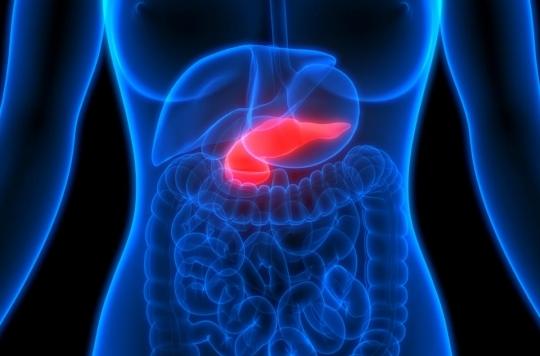Researchers have discovered that cancer cells are able to modify their environment to allow the development of metastases and fight against chemotherapy.

Pancreatic cancer is particularly aggressive: it accounts for only 1.8% of cancer cases in France but ranks 5th among the causes of cancer death. A group of scientists, from the Garvan Institute of Medical Research in Australia, became interested in the behavior of cancer cells in this type of disease. In their worksthey find that they are able to adapt their environment and that this contributes to the creation of metastases.
We are super excited to announce that our recent work in close collaboration with A/Prof Paul Timpson @Timpson_Lab has just been published in Nature Communications @NatureComms Read more here: https://t.co/1l4X7k5y28 #PancreaticCancer @GarvanInstitute https://t.co/iAw8fDaXx1 pic.twitter.com/sXCrYi6QJR
— Matrix & Metastasis Lab (@TCox_Lab) August 12, 2019
Modify the cellular environment of tumors
The researchers analyzed the organic tissue, called matrix, present around cancer cells in two configurations: metastatic and non-metastatic cancers. These matrices are mainly composed of fibroblasts, the researchers used them to test their hypotheses. When fibroblasts from a metastatic tumor are mixed with cells from a non-metastatic tumor, the tumor grows. “This means that even a small number of aggressive metastatic cells can help the development of other less aggressive cells,” explains Claire Vennin, the lead author of this study.
Improve response to chemotherapy
The researchers then took a closer look at the fibroblasts of the metastatic tumors. They discovered that they produce certain molecules in higher quality than those of non-metastatic cancer cells. In mice, the researchers artificially lowered the level of perlecan, one of these molecules. These mice all had a metastatic tumor, and lowering the level of perlecan reduced the spread of cancer cells and improved the effectiveness of chemotherapy.
Developing new treatments
The researchers believe that their discoveries will make it possible to improve treatments for different types of cancer, such as prostate or breast. “Most cancer therapies aim to attack cancer cells directly, adds Dr. Timpson, co-author of the research. The environment of tumors is an unused resource in cancer therapy.”
These new avenues of treatment are a hope for patients and the medical community. Because the pancreatic cancer mortality rate increased by 5% between 1990 and 2016.

.

















